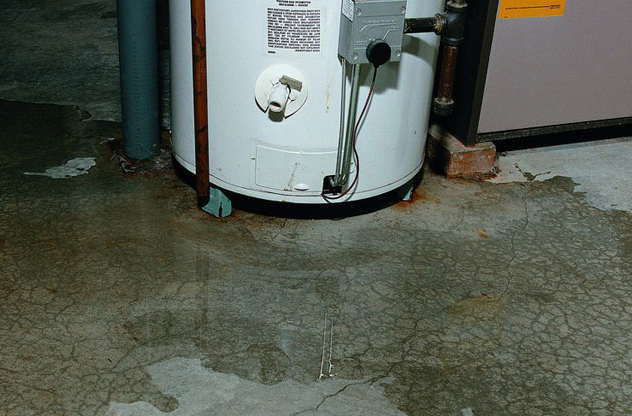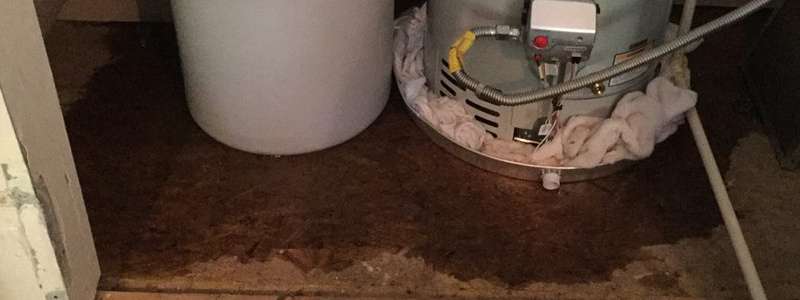The publisher is making a number of good observations on How to Find and Prevent Water Leaks in Your Home in general in the content in the next paragraphs.

"Beware of little expenses. A little leakage will sink an excellent ship." - Benjamin Franklin.
He couldn't have been much more right because water leakages in our homes result in a waste of sources, boosting our water bills. Although this increase could seem negligible at first, it can cause significant expenses that can damage your bank. Other than an increase in expenses, water leaks also create unwanted organic development, structural damages, as well as also electric threats.
If you have a water leak isn't always easy due to being unable to see most of the pipework in your home, figuring out. If you have had an increase in your water expenses recently, observed water spots on wall surfaces and also ceilings, scented lousy odor, and so on. You might wish to think about asking for plumbing solutions to get it had a look at.
There are several sources of water leakages, and we have actually put together the common reasons listed below. Inspect to see if you have actually had related problems in your house just recently.
Clogged drains
Food fragments, dirt, and oil can cause clogged up drains as well as obstruct the passage of water in and out of your sink. If undealt with, boosted stress within the rain gutters can create an overflow and end up cracking or rupturing pipes. To prevent clogged up drains in your home, we recommend you to avoid pouring fragments down the tubes and regular cleansing of sinks.
High water pressure
You discovered your house water pressure is more than typical yet after that, why should you care? It's out of your control.
It would certainly be best if you cared since your average water pressure should be 60 Psi (per square inch) and also although your home's plumbing system is designed to withstand 80 Psi. A boost in water stress can put a pressure on your house pipelines and cause cracks, or even worse, burst pipelines. If you ever discover that your home water pressure is higher than typical, contact a professional concerning managing it.
Deterioration
As your pipework gets older, it gets weak and also more vulnerable to rust after the frequent passage of water with them, which can eat away at pipes as well as cause cracks. A noticeable indicator of corrosion in your home plumbing system is staining as well as although this might be tough to identify as a result of many pipes hidden away. We recommend doing a frequent check-up every few years and alter pipes once they are old to ensure a sound plumbing system
Damaged pipe joints
Pipe joints are the components of our plumbing system where the pipelines attach. It is crucial to keep in mind that even though pipelines are designed to hold up against pressure and also last for a while, they weren't developed to last for life; consequently, they would degrade over time. A common indicator of harmed pipeline joints is excessive noise from taps.
Broken seals
An additional root cause of water leakages in houses is damaged seals of house devices that utilize water, e.g., a dishwasher. When such appliances are installed, seals are set up around water ports for simple passage of water through the machine. A broken seal can create leak of water when in use.
With little or no expertise of plumbing, understanding your residence's plumbing system adequate to take care of a few of these problems (without effect) can be a headache. Get in touch with plumbing professionals in Pittsburgh, Providence, Rochester, as well as environ today, and they'll make those concerns vanish.
He couldn't have actually been a lot more best because water leakages in our houses result in a waste of resources, increasing our water costs. If you have had an increase in your water expenses lately, discovered water discolorations on ceilings and wall surfaces, scented poor odor, and so on. A rise in water pressure can place a pressure on your home pipelines and also lead to fractures, or even worse, ruptured pipes. One more reason of water leakages in homes is broken seals of residence appliances that use water, e.g., a dishwashing machine. When such devices are installed, seals are installed around water connectors for easy flow of water with the maker.
5 TIPS IN DETECTING A WATER LEAK IN YOUR HOUSE
Water leaks can be hard to find in your home, yet they can be so common. We rely on water every day in our home, which is why a leak can cause big problems. By detecting them early, you can save money and further damage, getting the problem fixed as soon as possible. Here are 5 tips to help you detect a water leak in your home, so you can contact a plumber straight away and get the issue sorted.
Check your water meter
Many people underestimate the value of the water meter in their home. It can be one of the best ways to tell if you have a leak early on, so you can get on top of it before issues start arising. Start by turning off all the water in your home: taps, washing machine, dishwasher, etc. Now take a look at the meter – if it’s still changing with everything turned off, it’s likely you have a fast-flowing leak that you need to get on top of straight away. If nothing changes, then leave your meter for an hour or two and come back to it. Did it change in this time? It’s likely you have a slower leak, which isn’t as urgent but still handy to get fixed so it doesn’t become a bigger problem.
Keep an eye on your bill
Another good way to detect a leak in your home is by keeping an eye on your water bill. It helps if you have a past bill from the same period of time. You can compare like for like and determine whether your water usage has increased significantly. If it has, there may be a leak in your system that you haven’t picked up before. A professional plumber can check through all of your pipes and determine where it is coming from.
Look for damage
If you have a leak inside your home, you will notice damage over time. Take a look at your showers and bathtubs and note whether any of the tiles surrounding the area seem to be discoloured or damaged in any way. There may be water stains, mould or peeling material that has resulted from a build up of moisture over time. Make sure you take a look under sinks at the back of cupboards that don’t get accessed regularly. This is where damage can go unnoticed and build up over periods of time.

We are very interested by How to Find and Prevent Water Leaks in Your Home and I hope you liked my blog post. So long as you appreciated our article please make sure you remember to pass it around. We love reading our article about Where to Find Water Leaks.
Best in business.